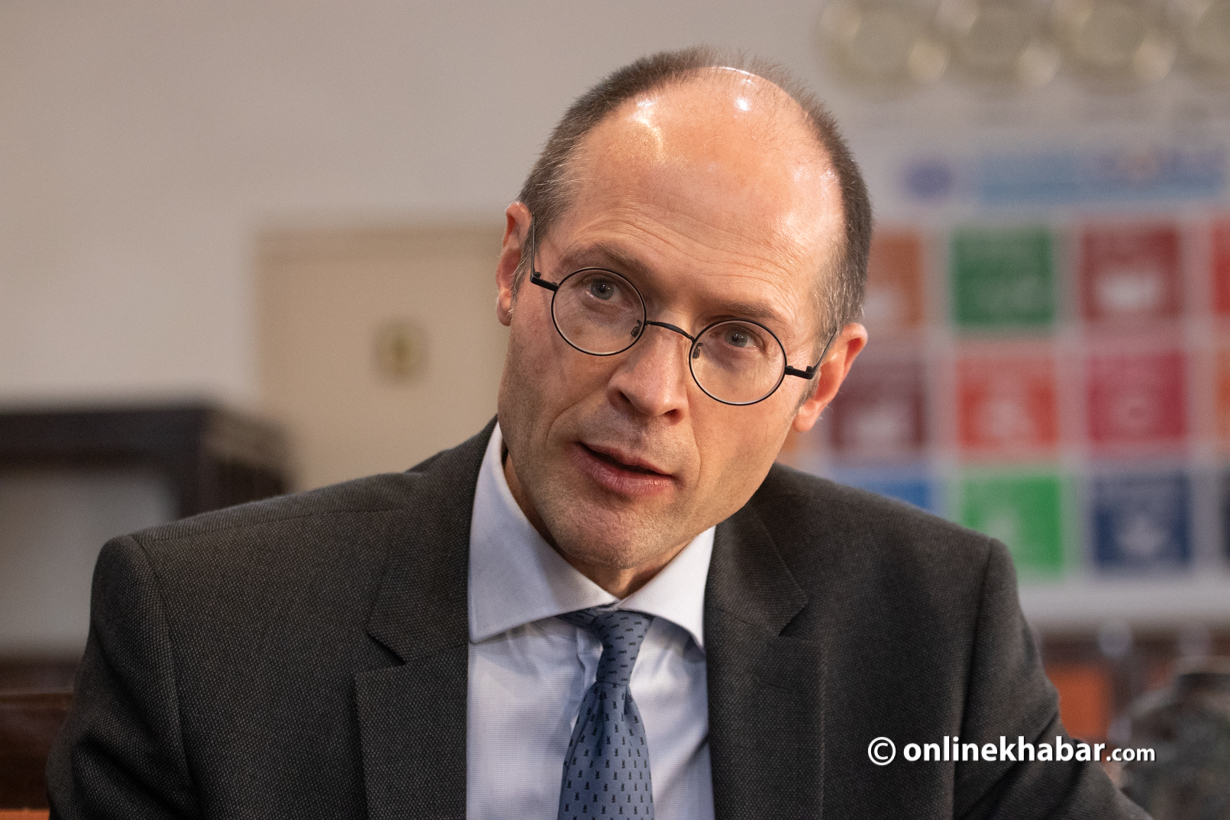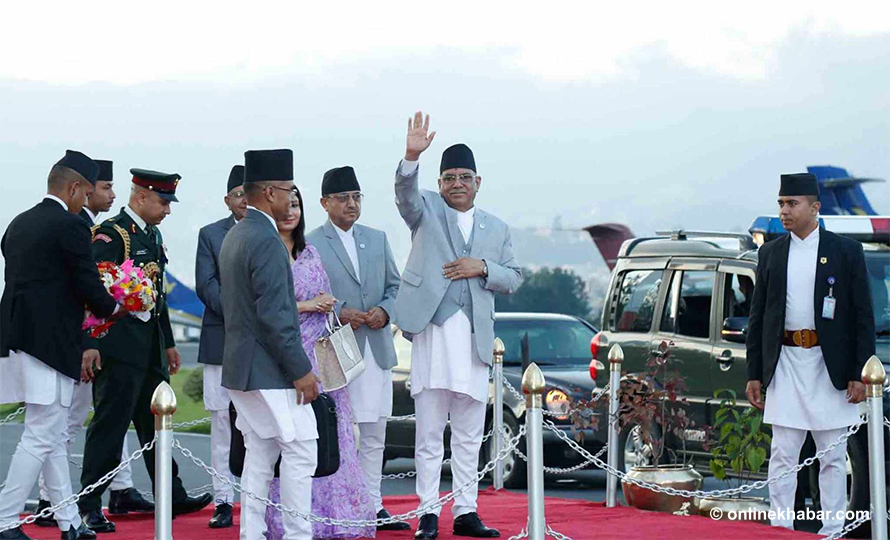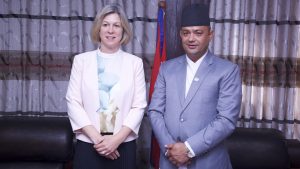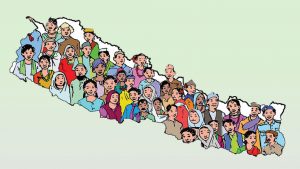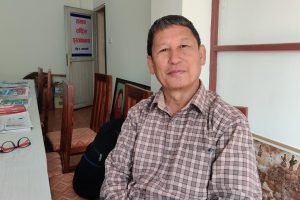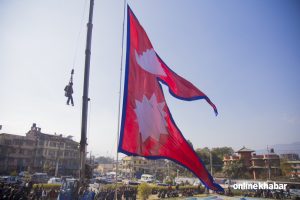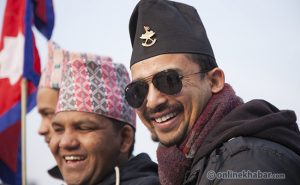On November 25, the United Nations approved a historic resolution to promote Nepal from the least developed status to a developing one to be in effect from 2026. However, there are concerns about the country’s capacity to achieve this in reality as it is still struggling to uplift the living standards of the people living under the poverty line.
Olivier De Schutter, the UN special rapporteur on extreme poverty and human rights who is currently in Nepal on a 10-day visit, says he critically looked into the challenges of Nepal’s graduation to an upper status as he met different groups of people in the country. Concluding his visit, De Schutter, in this exclusive interview with Onlinekhabar, shares his observation of the living condition of the people from marginalised and other economically poor communities.
Excerpts:
In your 10-day sojourn, you must have observed the pattern of poverty here. What do you think are the reasons for poverty in Nepal? Are they different from those in other countries?
The diverse groups in Nepal have also posed a huge challenge. The difference [from other parts of the world] is that poverty exists in certain, separate groups defined by caste, ethnicity and gender, where women are more affected than men. Consequently, this means, even if you have strong economic growth and general progress, some are facing obstacles that need to be addressed to ensure equally spread progress.
Another aspect of inequality, which is not unique but more commonly seen in the country, is the lack of access to documentation like birth certificates, citizenship, and land ownership certificates. Many whom I met informed me that the documents were difficult to obtain but necessary to acquire the social protection funds.
Such factors are difficult to measure or define, but it is a significant problem and they further the reason for poverty.
But, the good part is that the problem has been fully acknowledged by the authorities. Other countries sometimes have the tendency to negate the problem. I believe the government would require a lot of help [from people] in that regard.
How do you think the country can ensure that those living below the poverty line understand their fundamental human rights and that they are protected?
Many people living in poverty are also those who are illiterate or almost illiterate with little to no access to the internet or access to information because of some negative experiences with the authorities. This means the people in need are not well-positioned to benefit from the social protection programmes. It is a problem not unique to Nepal, and we are conducting a worldwide survey to understand the phenomenon better.
To anticipate such problems, we have to stay proactive; we have to reach out to the families so that they know about their rights and can claim the benefits too. For this, we can put up focal persons at the grassroots level. We have to ensure the information goes from person to person, and they raise much-needed awareness in the communities.
For example, the national health insurance programme has enrolment assistants employed at the local level: one for every 1,000 people, who are tasked with the responsibility to inform people about the programme, and need to do that. So Nepal can expand such initiatives and make people aware of their rights.
Also, the dissemination of the information can be done in several local languages, not just Nepali.
Nepal is still one of the least developing countries although the country does have at least one internationally recognised billionaire. How do you see the gap between the two polar oppositions in Nepal?
To combat poverty, it is inevitable that you have to challenge extreme inequalities as well. This is especially true since economic growth will not reduce poverty significantly if it is not combined with the measures to redistribute wealth. Nepal is no exception to these extreme inequalities as it does not necessarily have attention to make the system inclusive enough.
I met people who are in the direst state, for example in Janakpur, who are living in a quasi-bonded labour situation, even after the law abolished the Kamaiya system in 2002. They are in a land that is not theirs and working for others waiting for the chance to get a small piece of land for themselves to eat. For any expense, be it health or marriage, they have to take loans, work for them and be indebted to them for a long time.
But, what might help minimise the gap is progressive taxation, robust social protection schemes, and ensuring that the people under the poverty line also take part in the decision-making.

In the wake of the Covid-19 pandemic, how do you think Nepal can progress towards reducing poverty and achieving the developing status as per a recently approved UNGA resolution?
It is too early to say what long-term impacts Covid-19 shall have. The short-term impact was definitely economic in nature: people had to lose their jobs, and businesses had to shut down.
But, the human development aspects are worse and irreversible, with children being most impacted. Schools closed down; many could not follow online courses, forcing [adolscent] students to drop out. To compensate for the loss of their parents’ jobs loss, they had to work as well. But the result of leaving the school will be significant, their life chances will be reduced. And this will be very difficult to overcome. And, they will snowball into bigger economic hindrances for Nepal in the coming years.
Don’t you think the state needs to change the way it channelises its funds so as to fight poverty?
Social investments and investment in public services and social protection would be extremely vital. Nepal has introduced the social protection system in an ad-hoc manner as it was introduced to serve the public servants, pensioners. But, it has become more imbalanced, unnecessarily complex and more costly for the administration.
To change this, there is a proposal for an integrated social protection framework which means that all the social protection schemes are placed under the same umbrella, streamlined and managed to complement the overlaps. More importantly, you need to have a single registry maintained to track each scheme and see who is covered and who is not.
Finally, how can Nepal be a case study in terms of poverty and related issues? What can people learn from it?
A lot of discrimination is not a result of government policies or legislation rather the social discrimination within families or communities. I met families who were not ready to invest in their daughter’s education saying it is the boys that should be educated or families where girl children were being married off early. Such social discrimination is difficult to challenge and takes more time.
In Province 2, I learned about the Dalit Empowerment Act and am very much impressed. And, I think such acts can also inspire other provinces on aspects of where progress can be made.
What Nepal can provide the world as an example is its management of diversity. It can take encouraging steps to support the disadvantaged groups, in coherence with the new constitution of 2015. But, it is a long-term practice.



